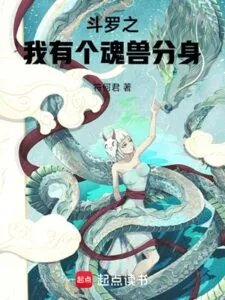The Heart is a Void: Ashes to Ashes - Chapter 116: Ashes of Eden
Chapter 116: Ashes of Eden
Scanning through the list of miscellaneous quests pertaining to the ‘Legendary Beasts’ game, Crucis saw a cluster of quests which began with the word ‘first’ – ‘First completed game against an A-Ranked (or above) NPC,’ ‘First completed game of the Gauntlet Challenge variant of Legendary Beasts,’ ‘First successful use of the Golem piece.’ These challenges seemed like they could be completed quickly, and given how much EXP Crucis received for playing Arinos the first time, it seemed like an opportunity for quick growth.
As Fahiz returned, Crucis asked, “Do you know of any version of this game known as the Gauntlet Challenge? A bit of a weird name, but it’s mentioned in a quest.”
Fahiz thought for a second, then said, “I think that there’s a variant which some people call ‘gauntlet,’ though it’s mostly known as ‘Carousel Arinos.’ Basically, one player uses a piece, then hands it to the other and takes up a new piece. So players switch characters, and run through four or more pieces. The challenge is keeping the scenario going, in spite of the changing personnel. It can be a bit hectic, but since it’s a quest, we can give it a try. Any other quests?”
“Well, there’s one saying to try the Golem piece, and another saying to learn the full set of pieces… Though I’d think we’ve done that, but apparently not. Also to play with an A-Ranked NPC.”
“I would probably qualify, I have a long history with Arinos. Since it mentions the Golem, maybe they mean the standard pieces used in Merkite Arinos, that is, the version of Arinos which is popular in Merkul? It’s a bit different from the rest of us.”
“In Merkul? Yes, that sounds about right.”
“Very good. You might be able to complete these quests at the same time, then, by playing Carousel Arinos with a few Merkite pieces we have here. I’ll run you through each of the pieces quickly.”
“Great idea. We should have enough time, so let’s get on that.”
“Alright. Well, for Carousel, we first need a scenario to represent. Typically it’s based on one of our well-known mythological stories, but you might not know these. So we’ll need some mythology you’d be familiar with… I do have a copy of the Bible here, it’s an English translation named the ‘Great Bible,’ we could probably take something from there.”
He went briefly into the room behind Ala-ud-din, and came back holding a large, black copy of the Bible. He had also picked up a couple of carved wooden pieces, presumably the ‘Merkite’ pieces, though they seemed a bit rough compared to the ones currently on the chessboard.
“It’s a large book,” Fahiz commented. “Do most people read it cover-to-cover, or is it mostly used as a source for disseminating popular myths?”
“I’ve never read the whole thing,” Danemy said, walking back after stretching his legs outside the building briefly. “I grew up in Scandinavia, my family wasn’t that religious.”
“You’d probably know a few stories from here, though?”
“Yeah, I guess.”
“Alright, we might as well stick to something simple.” Fahiz leafed through the early pages of the book. “Well, I’m sure you’re familiar with the story of Adam and Eve, and their exile from Eden?”
Danemy nodded, and Crucis followed.
“Alright. The Merkite pieces tend to be slightly melancholy, as you’ll see, so I think the most appropriate scene would be Adam at the beginning of his exile from Eden. Adam, being a creature formed from soil, is often represented with the Golem piece, so this seems like a good chance to try that out.”
“That makes sense,” Crucis said. “What’s the Golem piece supposed to represent?”
“The idea is that it’s a creature of soil which was animated into an earth-monster, and generally is used to represent a sense of melancholy due to its being trapped in lifeless earth. There are real golems far to the North-West, and they often rise from the ground only partially, still tied to it. We don’t know precisely how they were animated, but there are many myths. Regardless, give it a try and we’ll see how you do.”
He handed Crucis a piece which was carved loosely into a wooden mound, like a gravestone, with a gaping mouth and two arms. It was a bit like the Mountain piece, but shorter and much less clearly structured.
“Sure. It fits this setting well.”
Fahiz nodded. “Yes. I’ll play the null piece, and help you set the scene. I’ll take Adam after you’re done, and Dan here can take the next one. I’m not as good at this as Sharak, but I’ll try to keep things simple.”
SPIRIT. Alas, man of soil!
You are a creature forged in godly splendour,
Why then is your look so despondent, as if you regret
That God forged you out of the lifeless earth?
ADAM. Does godly splendour make for grander ruins?
SPIRIT. Do you not look back on Eden’s joy, and delight?
Do you not feel its beauty, with all in harmony under God?
ADAM. But, ah! when all the world dissolves in gloom,
And the light of life is one with death’s dusky shadow!
Then, then, my heart! thou feelest, and thy hope is gone,
And thy love is as a dream that vanishes.
I am sick with anguish: the wide world is but a thing
Which the mind wearies of,
And fain would know the bitterness of death.
SPIRIT. Speak not so! What of the hope
That bids you return? It is still new,
And may you not take joy in that?
ADAM. Is this fate the price we pay for hope?
That would be a bargain for hope’s seller.
“Very good,” Fahiz said. “The next piece you should use, the ‘Arkha,’ isn’t specifically Merkite, we use it often. Many local customs have their own variants of it. It’s known as the ‘ghost ship albatross’ piece, it’s based on a mythological deep-sea creature which inhabits the skeletons of great sea monsters and seeks to restore them to their former glory. It tends to be quite pragmatic and cynical, but also has a certain grandeur and stubbornness.”
As Crucis took the piece, he saw that it was carved into a shape resembling a coelacanth. “So what would be an appropriate analogue from the Eden narrative?”
“Good question. Why not some ancient animal that was also cast out from Eden?”
“Hm, so maybe a trilobite?”
“How would Adam be talking to a trilobite?”
“I don’t know. Maybe it was feeling chatty. Does it matter?”
“I suppose not. Very well, then.”
TRILOBITE. Now freed from tranquil, pious Gardens,
We have great expanses of earth to excavate,
Mountains’ shadows droop over us like large leaves
Of a drooping, rain-washed canopy, and waters
Range across taking the earth for chattel, until
Their departure leaves deep valleys and gullies.
Only in freedom, now we can explore, and wander
Like the grass which now, unkept, ungardened,
Blasts wildly across the fields and woods, as if
Finally unchained. O, what a world we live among
When we are not tilled by the green fingers of God!
ADAM. How now, a trilobite?
TRILOBITE. The very same. And who are you?
Ah, you must be the mournful image of God,
For look how destitute your gaze upon the earth
That is new to us, yet to you already abhorred:
For the lack of God’s design it’s scorned.
Do not mourn the exile from innocent Eden,
But cheer innocence wrested back from Providence.
ADAM. But I must mourn! For Providence decreed
That I must be image of God, and outside his Garden
I cannot be so! What else can I do, or what intend?
TRILOBITE. If such decree were truly important to you,
Why would you not be still trapped upon Eden’s soil
Forever kneeling to Providence? Here, be what you are.
Ask no more. Providence is a fairy sport, played upon
The earth, with goals and judgment and results –
Concocted of the ether of God’s command and morality –
That enchain this solid earth. Once, God gardened
And subjugated the earth, now we have our own wild game,
And he may only rig it. Alas, no longer offer prayer,
Nor offer sacrifice, for it shall only bring strife
And your kind shall conflict over each distinction
Between divine favour and disfavour. And in the interstice
That falls between God’s changing moods, men will flame out
Their whole life in hopes of favour, and woe of neglect.
ADAM. Alas, we only know the simple way of God.
And how could we go on in good conscience,
Knowing that we defied God, and without sacrifice
To atone sometime for our blasphemous, vile sin?
TRILOBITE. Look to the horizon, where lie lands unexplored!
The morning-stars of freedom have raised their torch,
And the seven-branched lamp of knowledge stands there
Amid the sevenfold-crowned kings of wisdom,
And brands with living flame Eden’s frozen years.
To each in turn, Eden’s dreams are sacrificed,
To voiceless altars offered, and the hopes
That kindled at God’s altar-hearth expire
In silent flames, unseen, unheard, and unknown.
Range this mighty world, and let your old dreams go.
We defy Providence. The mind is an untamed field, so why
Tame it with simplicity? Or why fear obscurity?
ADAM. Ah! it may be true, but I must consult
With Eve, who still weeps, and prays, and sings
In a voice of lamentation. We must cherish what
Joys we have, since God has adjoined us, and thus
I shall acknowledge your speech, but cleave to hers.
TRILOBITE. You may cleave to your rib, and to God,
Though I may too rib you for having no spine —
But it is meaningless. I have roamed these seas
And made the sea-bed my abattoir, flush with prey,
And swam through thick currents, even lifted
Upon the tidal flat to gaze upon this new earth.
I tell you, the more you worship, the more you’ll find
That murder is your kindred, a God above God,
For what has God to offer but strife to this world
That he despises? And soon your kin shall roam
And make this world an abattoir for each other,
Until strife wrecks through every ship you sail
To hold you cleft to God, through the flood of freedom
And through this earth where piety comes to drown.
“That’s fine,” Fahiz said. “That was a good take on the trilobite. I’m impressed at how quickly you switched between characters, and started haranguing Adam.”
“It’s a simple skill. One must tread softly, and not be pinned in place,” Crucis said. “And what character’s next?”
He handed the ‘ghost ship’ piece to Danemy.
“Well, the next one is known as ‘Mimir,’ it’s generally used as a representative of memory,” Fahiz said. “It displays memories and past events, sometimes reciting the parts of those within the memory. It’s fairly dynamic and unpredictable. You’ll probably take well to it.”
“I suppose so. So I’m basically a spirit of memory?” Crucis asked.
“Yes.”
“Alright. Well, let’s try this out.”
ADAM. What is this mournful figure that stands still, and watches the sea?
TRILOBITE. It is a spirit.
ADAM. But of what kind?
MEMORY. My demesne is memories. I take as my principality the memories of all things, all places, and all creatures. Alas, human, your steps are crestfallen and inconsolable, as if still perplexed by inexplicable tragedy.
ADAM. Alas, I have fallen far from Eden, I am now exiled from there for ever. Though I do not know all that transpired, to bring about this fall.
MEMORY. And was the rush of calamity too much for you to make out clearly what happened?
ADAM. Why, yes! I would fain have this clarity.
Can you tell me how the serpent deceived,
And banished us from Eden?
MEMORY. Yes. Well, there is plenty that could be told, but you may know much of it. Where should I start?
ADAM. Well, let us begin this tale from the start.
Tell me, sir, how came the serpent to Eve?
MEMORY. As Eve lay by some bushes and low trees,
The serpent hid behind the leaves,
And sang dolefully a lovestruck song,
Feigning not to know of her presence,
As if she had overheard, and it was
A private utterance, by a sensitive soul:
‘The moon at midnight and the stars above
Are brighter in my solitary love
Than all the lamps of the gay world, I swear,
Thee only, O Eve! do I adore.’
ADAM. Alas, the fiend!
TRILOBITE. I daresay, what a charming verse. No doubt Eve found him more congenial than Adam.
ADAM. Impossible! She was made as my bride, and in Eden was flush with innocence. Spirit, speak more, tell me what happened next!
MEMORY. Then spake he a verse, adoring but simple,
As if an inexperienced youth in the tide of romance,
Tossed wildly, and unable to bring words in order,
Yet speaking still, as a gale must blow in a hurricane:
‘I cannot see thy face, but in my veins
The fire of life hath kindled a longing for thee.
Thou livest in my heart, and it, like a lamp
That is newly lighted, burnest from thought of Thee.
O love, if I should lose Thee, my soul would lose
All its long travail, and would but lie at rest
Till its dust and ashes be dissolved in the void.’
Then says she, distressed, ‘O, sensitive creature,
Do not for ever avert your gaze! I am with thee!
You must not thaw to ashes, but look upon me now!’
ADAM. Alas, foolish girl! But she probably acted in innocence, truly stricken by the serpent’s sentimental plea. For she has had always an excess of sympathy.
TRILOBITE. Well, she certainly did not act in intellect. But don’t you think her heart was moved?
ADAM. Why do you mock me in this way? I do not.
TRILOBITE. If I mock you, then probability dictates I should often be right. For even God, who created you a fool, is ashamed by your foolishness.
ADAM. Enough! Eve was created with a pure heart, but she is too innocent.
TRILOBITE. God created woman with a pure heart, but was not too circumspect. Spirit of Memory, what happened next?
MEMORY. Alas, the serpent was hesitant, and shivered
Quietly against the leaves, as if afraid that Eve
Would take offence, hearing him, and then he spoke
As if one in torment, ‘My love, do I dream?
What pleasure can my songs give to thee?
Or what avail my tears to thee, my dear?
I cannot weep for thee, since my heart
Is full of thee, and cannot overflow.
Too much of thee! ah, what would I give to see
Thee fold me in thine arms for a little space!
For one hour of the night, to feel and know
The blessed comfort of Thy presence near!’
Eve was overcome by this burst of wild song,
And she lay down among the leaves, beckoning
Him onwards by sweet words. As the snake peeked
Out towards her, she faintly stroked its head,
And was aroused as it slithered across her legs
To copulate. Its scales were firm as a sword,
And she lost her virginity in ecstatic writhing
Like a snake’s, entwined with her new leman.
Her moans woke even tired Adam, who lethargically
Roamed the Garden to seek her. This is how
Eve fell, O listen to this tale and feel woe!
TRILOBITE. I daresay Adam feels aroused by it.
ADAM. No! It was a sad tale… O, tragic night
When frail Eve was undone by serpent’s spite.
TRILOBITE. You vaunt aloud, but are racked deeply with a fetish for cuckoldry.
ADAM. O, Memory, what happened after this liaison?
MEMORY. You well know, for you found Eve soon after. But, to summarise, the serpent’s laughter resounded through Eden, and soon stirred God, who found Eve and thought her clothed. In truth, it was just the serpent’s ejaculation that covered her private parts, but he did not know that – just like he did not know where you were until you told him. And, though not knowing all details, God is now racked with deep regret.
ADAM. Alas, to have woke God, this serpent’s evil is without end! But my fate is worse, to know what has been done!
“‘Woke God’? What a terrifying phrase,” Crucis said. “It conveys the thought of some sort of ultra-jannie, a jannie mutated to new depths of subhumanity.”
“Like FGRT, but worse?” Danemy said, smiling.
“Yeah, something like that. No wonder Adam is worried. Anyway, well done, you played a good trilobite.”
“Thanks. Have to say, that dialogue was quite fun, I enjoy tormenting this Adam figure.”
“Quite. But I think you all did well,” Fahiz said. “Now, for the next one, let’s switch again to give Danemy a chance at the Golem piece, so he can complete that quest. The next Merkite piece to try out is the so-called ‘Spirit of Despair,’ a piece with ghostly blue wings that is said to represent disillusionment and despair at the world. Its use can range from, say, the misanthropy of Timon of Athens to the cynicism of Diogenes’ lamp or even something like Ecclesiastes. That’s up to you. As for the Golem, I guess you already understand that to some extent.”
He revealed a piece which looked like a butterfly, with wings that were carved incredibly thin and were painted faintly in a deep blue. Giving this to Crucis, he took the Mimir piece and handed Danemy the Golem.
“I’ll just try and do what Crucis did, if that worked,” Danemy said. “Though if you want to pick on Adam again after that, then I’m game.”
“Well, it’s worth a try,” Fahiz said. “I’ll let you be the focus, and will not interrupt, to make your quest easier. And what character should be the mournful Spirit of Despair?”
“Well, why not Timon of Athens?” Crucis said. “That could be fun, though I guess Athens doesn’t exist yet. Well, perhaps Adam meets a meerkat – wandering here from the area that would later become Athens – named Timon, and talks to him in lieu of the sadly departed trilobite.”
“Poor Adam, he’ll become Dr. Doolittle at this rate…” Fahiz said. “But that’s fine, I suppose. Let’s try and get through this quickly. Some places in Merkul prefer the Spirit of Despair to speak in plain prose, while others have him give long, often repetitive prose speeches that end on a downer. I guess try to give a couple examples of both, then we’ll move on to the last piece.”
TIMON. Ah! the son of God! Do you still walk nobly, with your nose towards the sun?
ADAM. Ah, no! the turquoise-lined chambers of nobility
No longer proudly hold the throne of state;
For though the palace-front be still the same,
That in rot I still seem a frieze of the divine,
And Time may forge vast temples of my flesh,
I am changed, and all my stately pomp decays;
And all my fragile dreams must pass away.
Pride, like a meteor, hath set fire to my life,
And all my serene pavilions are in flames.
TIMON. Fragile dreams must often pass away, it is true.
ADAM. Yes, and what a tragedy, that they shall not know fulfillment!
TIMON. No, that is fine. Dreams are but a play of shadows, a theatre of shadowy resemblents disguised as the things of the world, and cannot enter the world lest it be withered to a setting of insubstantial shadows and passions. For passion is meaningless and insubstantial by nature, and it cannot interact directly with the world, only with the shadows misting in a dream. Even if dreams were realised, they would be like a spider that could only spin ‘the shadow of the wind.’
ADAM. But, when cast out from Eden, what else can we do but dream?
TIMON. Men are scoundrels, I care not what they do.
ADAM. Why do you say we are scoundrels?
TIMON. Well, aren’t you?
ADAM. But you said that we walked nobly!
TIMON. Yes, for you walked straight into your grave… But now you are in it, and you no longer walk nobly, for you have no reason to walk at all.
ADAM. Our noble dice have rolled wrong, and this fate,
This fate is not why the Heavens had exalted us
To a nobility of stature, to be the very image of God!
We are cast adrift from our nature, and fated to sink!
What storm could have carried us here, defying Heaven?
O, could chance have erased even the great will of God?
For we are numbered by dice, that gamble God’s image away!
Alas, to start again, and not take the fruit just once…
TIMON. And if you did restart, it would probably be a different number, but it would still be the same old. It would be just another way of going round and round in circles, and nothing would really change, and you would still be alone, and your wife would still be ugly, and the stars would still be out of sight, and the moon would still be a pale thief, and the sun would still rise and set, and everything would still be just as it always had been, and you would still be screwed, you know? Simples.
ADAM. But we were built for something greater, surely we could avoid this fate? Alas, that one decision and one punishment could lead to this!
TIMON. God’s Providence strikes once, and the world is punctured, for he is a foreigner and interrupts rudely. He makes but one puncture, between Heaven and Earth. With this as lever he conspires to tear down the world, for Providence brings nothing but incursion and disruption. But why all these questions, is this an inquisition?
ADAM. How can a meerkat speak so meanly of God?
TIMON. Do you compare the meerkat to a God? The meerkat is more wise and more temperate. I am offended by your question, and so I depart.
TIMON exits.
“Alright. I think that Sharak is mostly done explaining the map, so let’s just finish the last piece,” Fahiz said. “It’s another spirit – those are popular among the Merkites, though we tend to use the dragon piece to represent spirits instead – and in this case the fiery-winged Spirit of Wrath. It’s associated with a volatile mixture of conscientiousness and rage. It also tends to be somewhat prophetic. But it can have a comical element.”
He handed Crucis a piece which resembled the Spirit of Despair, but now had thicker wings that were carved wildly at the top to resemble a fire.
“Alright, wasn’t there an angel that guards Eden, after Adam leaves?” Crucis said. “Maybe that would fit.”
“The one with the sword of fire? A good decision. I’ll play a null piece, and try to make sure we get through this quickly.”
NARRATOR. And Adam, wandering the deserts by night, turned around and caught his last glimpse of Eden through the trees. A white-winged angel was hovering over its entrance, with a sword of fire, to keep him out.
ADAM. Ah! There is Eden, its leaves still dancing with abandon! What light is this above it, so peacefully bright and yet so fierce? Is it the sun? For I remember its lively, fiery dance in the skies of Eden, which charred and yet enlivened the skin, much unlike the drowzy lanturn it carries over this earth. Alas, to see the sun shine thus, and not for me!
ANGEL. What, does man look back on Eden?
I must hide it from him… But he gazes
Upon the sword, and thinks it the sun.
Foolish creature, that is blinded in light
Of his memories, and cannot recognise
The sword that blights his path back to grace.
If he sought redemption, he’d burn to my touch.
ADAM. The flowers that the light illumines
Are pale pink and white, and remind me of Eve
As I first saw her, when she first woke.
ANGEL. Alas, he is a castaway! He must not
Take such pleasure in the flowers of Eden!
If the flowers cause him such hopeful bliss,
I will cut them off, and they will not dance —
Nor will his joy or hope. All shall be still.
And all shall be well, and joy wakes never.
ANGEL cuts down the flowers, with a sword of fire.
ADAM. The flowers burn, they die away! Alas!
Did my grievous sin thus purge Eden of joy,
And condemn it to rust, and to woe, like me?
But at least the trees now may rest, without
The serpent, who was cast out along with me,
And nothing should disturb what of Eden remains.
ANGEL. This fool would have me upend all Eden…
And perhaps I shall do it. He bemoans the serpent,
But I think the serpent did well and had man banished,
And I shall do better: while the serpent brought sin
To poison Eden from within, I shall now wreck its very gates
Just that man may not take comfort or solace in them.
ANGEL slashes down the trees, animals and plants around Eden’s gates.
NARRATOR. Adam, horrified on seeing the entrance to Eden falling apart in flames, cries out and begins to run away. He is traumatised at seeing its beloved beauty tarnished, and it reminds him that he is forever in a godless world.
ANGEL. And so he leaves, and departs from the flame
That lines Eden forever, and casts him away.
ADAM. Alas, the sun of Eden fades! And all
That’s left is the bitter reproach of darkness.
Alas, we once rose into the sky with godly light
Like the sun! But now all that’s left to us
Is these remnants of misery that turn ashen on touch
ANGEL. Does he speak of the sun, or only himself?
The sun, that great, fiery, and absorbing orb,
Youth’s brilliant hope, dreams’ wildest, fondest flight,
The vast plane that with beauteous light o’erhung
The blue arch of the firmament, is to man but
A tale of Icarus in his glory and his fall.
So man, this day, this hour, this minute, passes;
So sinks the dream, so falls the shadow, and so
Fades the ephemeral array of his glories!
“And that should be it,” Fahiz said. “Congratulations.”
“Yes, the quests are marked as completed,” Crucis said.
He and Danemy spent the next minute combing through the quest log, claiming a host of quests. Since Crucis had focused on quests which had a simple requirement for completion, it was possible to clear many of them in one session. By the end, Crucis was nearing level 62, and Danemy had reached over level 50.











-1574-75x106.jpg)


-1579-75x106.jpg)